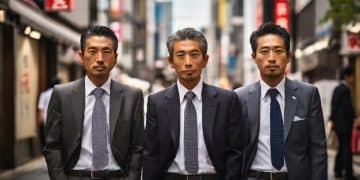From Idol to Actor: A Look at Pop Stars Shifting to J-Dramas

From Idol to Actor: Evaluating the Performances of Pop Stars in J-Dramas examines the successes and challenges faced by pop stars transitioning into acting roles within the Japanese drama landscape, assessing their impact and reception in this new medium.
The world of Japanese entertainment is known for its multi-talented stars. Many pop idols eventually try their hand at acting, particularly in J-Dramas. But how do these transitions fare? This article, From Idol to Actor: Evaluating the Performances of Pop Stars in J-Dramas, dives into the world of idol actors, assessing their successes, challenges, and overall impact on the J-Drama scene.
The Allure of Crossover: Why Idols Venture into Acting
The shift from singing and dancing to acting is a common trajectory for many J-Pop idols. But what drives this crossover, and what advantages do idols bring to the acting world?
Expanding Horizons and Career Longevity
For many idols, acting represents a natural progression and a way to broaden their artistic horizons. It allows them to explore different creative outlets and challenge themselves in new ways.
Furthermore, acting can contribute to career longevity. The shelf life of a pop idol can be short, and acting provides a stable alternative, enabling continued engagement with audiences.
- Increased Visibility: Acting roles, especially in popular J-Dramas, can expose idols to a wider audience, including those who may not follow J-Pop.
- Creative Expression: Acting provides a different platform for creative expression, allowing idols to showcase their versatility and emotional range.
- Financial Stability: Successful acting careers can provide a more stable income stream compared to the often unpredictable nature of the music industry.
- Personal Growth: Overcoming the challenges of acting can lead to personal growth and increased confidence, benefiting both their career and personal life.
Ultimately, the decision to transition into acting is a strategic move for many idols, aimed at maximizing their potential and sustaining their careers in the long run.
The Challenges Faced: Overcoming Stereotypes and Honing Skills
While the transition from idol to actor might seem seamless, it is fraught with challenges. Idols often face skepticism and criticism, and need to work hard to prove their acting abilities.
Breaking Free from the “Idol” Label
One of the biggest obstacles for idol actors is overcoming the preconceived notions associated with their initial profession. Many viewers and critics automatically assume that idols lack the acting skills and depth required for serious dramatic roles.
This bias can make it difficult for idol actors to be taken seriously, even if they possess genuine talent and dedication.

Essential Acting Techniques to Master
Acting requires a specific set of skills that may not be fully developed during an idol’s training. While stage presence and charisma are helpful, they are not sufficient for portraying nuanced and believable characters.
Idol actors need to work on techniques such as emotional expression, script analysis, and character development to truly excel in their roles.
- Vocal Projection and Diction: Adjusting vocal delivery for different character emotions and clarity is crucial.
- Body Language and Physicality: Mastering non-verbal communication to convey character traits and emotions authentically.
- Collaboration and Teamwork: Learning to work effectively with directors, fellow actors, and the entire production crew.
In conclusion, idol actors must diligently overcome prejudices and cultivate fundamental acting skills to gain credibility and respect in the acting industry.
Success Stories: Idol Actors Who’ve Made Their Mark
Despite the challenges, many idol actors have achieved significant success in J-Dramas. Their talent combined with hard work has allowed them to win over audiences and critics alike.
Oguri Shun: From Idol to Acclaimed Actor
Oguri Shun, originally a member of a popular idol group, has become one of Japan’s most respected actors. Shun’s career trajectory stands as an example for aspiring idol-actors.
He displays remarkable talent in diverse and memorable roles in numerous dramas and films. His success demonstrates what dedication, skill development, and calculated role selection can accomplish.
Yamashita Tomohisa: A Consistent Presence
Yamashita Tomohisa, often known as “Yamapi,” is another example of an idol-turned-actor who has enjoyed sustained success in J-Dramas.
Yamashita skillfully manages his music career with his acting work, showing versatility and ability in show businesses. His fame points to how an idol’s star can open new doors for them on screen.

Erika Toda: A Popular Actress
Erika Toda, once a darling of idol variety programmes, has changed to become a critically respected actress. Erika’s journey typifies the potential for remarkable evolution among idol-actors.
With notable roles, Erika is viewed as an inspiration; her commitment reflects personal reinvention, displaying the rewards of pursuing acting seriously.
Idol-actors prove that hard work and acting prowess make a difference in the world of J-Dramas, thus solidifying a space within film and television.
Fan Perception: How Audiences View Idol Actors
Fan perceptions of idol actors largely influence their acceptance and success. The audience’s support or disapproval can greatly affect an idol actor’s projects.
Initial Skepticism and Evolving Acceptance
Initially, there may be skepticism among audiences regarding the acting talents of idols-turned-actors. They are often judged according to stereotypes regarding their original profession.
As idols prove their competence in various roles through hard work and dedication, such perceptions evolve, resulting in eventual fan acceptance, critical support, and expanded role availability.
The Power of the Idol Fanbase
The established fan bases of pop idols tend to play a substantial role in the performance and publicity of J-Dramas featuring transition talent. The existing fans provide initial viewership.
This fanbase support helps get the initial numbers up and ensure that the idol-actor’s work gets noticed to a wider group of people. This can lead to mainstream success because others take note of the work done.
- Word-of-Mouth Marketing: Passionate fans are likely to share their positive experiences and influence others to watch the series.
- Social Media Buzz: Fans actively engage in online discussions, creating buzz and promoting the drama on social media platforms.
- Merchandise Sales: Fans often support the idol-actor by purchasing related merchandise, contributing to the overall commercial success of the drama.
Thus, the perception of fans often serves as a critical factor in the evaluation of idol-actors. This perception drives acceptance and impacts the actors’ journey from music-career to J-Dramas.
Director’s Perspective: Guiding Idols on Set
Directors play a huge role in shaping the performances of idol actors. This relationship between director and actor improves their acting, and impacts their career.
Providing Constructive Criticism and Guidance
Good directors do not simply instruct; they nurture. This ensures that the actor receives feedback and guidance to build on the performance and character development.
The director’s perspective often includes strategies, advice, and a patient approach, so actors can bring out the most of that actor’s artistic potential.
- Encouraging Experimentation: Creating a comfortable environment where actors feel safe to take risks and explore different interpretations of the role.
- Focusing on Emotional Depth: Helping actors connect with the emotional core of their characters and portray them authentically.
- Building Confidence: Providing positive reinforcement and encouragement to help actors overcome self-doubt and insecurities.
The partnership between actors and leaders becomes the bedrock of amazing shows. Directors, with experience, direct idol-actors toward good acting, and help to establish their new profession.
Future Trends: The Evolution of Idol Actors in J-Dramas
The role of idol actors in J-Dramas is continuously evolving. Trends and opportunities shape and refine their existence with entertainment.
Increased Acceptance and Opportunities
There is a growing acceptance of idol-actors. More and more idols step into acting positions that were once out of reach. This comes with a rise in opportunities that bring them to various roles.
Such evolution reflects a culture shift as audiences and industries become more receptive, and these celebrities, who once occupied a singular field, now find themselves as multi-platform personalities.
The Rise of Crossover Projects
An era of combining music and acting is coming. Projects that showcase skills from both areas are becoming more common, with music to go with the series they act in.
These crossover undertakings offer unprecedented stages for idol-actors, letting them to use all their versatility, and bringing interest from several categories in the entertainment sector.
- Original Soundtracks: Idols contributing to drama soundtracks, blending their musical talents with their acting roles.
- Concert Tie-ins: Dramas inspiring concert performances, creating a cohesive entertainment experience for fans.
Such developments point to a time when idol actors grow more important in J-Dramas, with both audience members and sector recognizing their abilities. It is up to trend patterns to see how their function will adapt alongside show business.
| Key Aspects | Brief Description |
|---|---|
| 🎤 Initial Challenges | Overcoming stereotypes and honing acting skills. |
| 🌟 Success Stories | Examples include Oguri Shun, Yamashita Tomohisa, and Erika Toda. |
| 🎭 Fan Perception | Evolving acceptance influenced by the idol’s established fanbase. |
| 🎬 Director’s Role | Guiding and providing constructive criticism to idol actors. |
Frequently Asked Questions
▼
Many J-Pop idols transition to acting to expand their career options and extend their time in the entertainment industry. Acting provides a new creative outlet and can help them reach a broader audience.
▼
The main challenges include overcoming stereotypes, developing advanced acting skills, and being taken seriously by critics and audiences who may doubt their acting abilities due to their idol background.
▼
Fans play a crucial role by providing initial viewership and continued support for the idol actors’ projects. Their active engagement on social media and willingness to buy merchandise also boost the drama’s popularity.
▼
Directors provide essential guidance and constructive criticism, helping the idol actors develop their acting skills. They create a supportive environment for experimentation and help actors connect with their characters emotionally.
▼
Future trends include greater acceptance of idol-actors, increased opportunities in varied roles, and the integration of crossover projects blending music and acting, showcasing their versatility across multiple platforms.
Conclusion
In conclusion, the transformation of idols into actors in the world of J-Dramas is a complex and fascinating phenomenon. While it presents numerous challenges, it also offers opportunities for personal and professional growth for the individuals involved. The evolving trends suggest a promising future for idol actors, with increasing acceptance, varied roles, and integrated projects that highlight their multifaceted talents.





